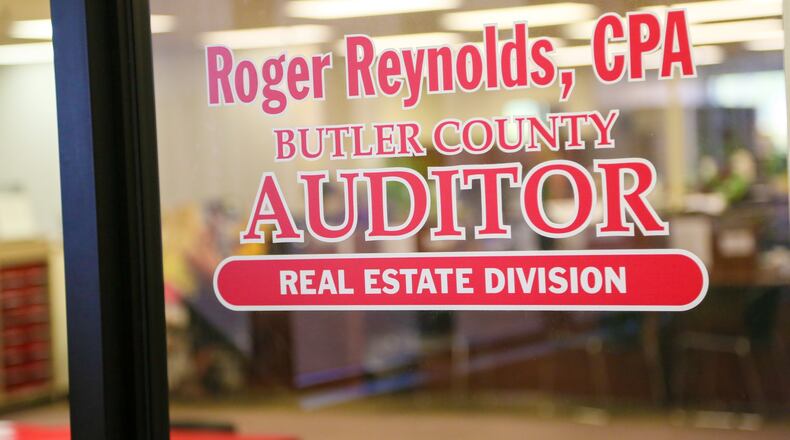“The new 2020 property values are largely based on 2019 sales data. With massive layoffs seen all across Ohio since mid-March and the economic hemorrhaging taking place, now is not the time to increase property values based on the 2019 housing market,” Reynolds said.
Generally, increased property values do not translate to higher tax bills unless a jurisdiction alters an existing levy or asks voters to approve a new levy. The Ohio Constitution provides that no more than 1 percent of its true value or 10 mills of the assessed value can be increased without voter approval.
A $100,000 home with an assessed value of $35,000 will generate approximately $35 at one mill. Outside millage refers to levies or bond issues that are voted on. There are 133 voted levies in Butler County.
So why push so hard to delay the reappraisal?
“There’s not a strong underlying impact, it’s that no one should pay more taxes than they should have to and that’s why we want to keep a conservative value on people’s properties. The last thing I want is someone to be overvalued,” Reynolds said. “It is the principle, the overall material impact on a tax bill may not be felt because of the 10 mills, but if its 10 mills or 1 mill, if it’s one dollar, I don’t think people should be overtaxed,”
RELATED: Butler County auditor reappraising properties amid coronavirus budget concerns
After his office visited all 165,000 properties in the county, he estimated property values could rise 10 to 15 percent, depending on a given neighborhood. The tax commissioner decides final values.
Under state law, property in all counties is reappraised every six years, and property values are updated every third year. Butler County is among 13 required to reappraise this year.
The state tax commissioner can approve delay requests for up to one year on six-year reappraisals.
During the Great Recession Reynolds was faced with doing a reappraisal under adverse economic conditions, and the tax commissioner wouldn’t allow him to adjust the values down in 2008.
“Going back to Butler County in 2008 we basically had a depression and there was no consideration for an extension at that time,” Reynolds said. “Fast forward to 2020 we have a global epidemic and looking for just reasonable cause, it seems as if there’s sufficient cause to allow us to delay one year to make sure that we have our 2020 values accurately assessed.”
Reynolds said he doesn’t expect his request will be granted. Gary Gundmundson, spokesman for the state tax commissioner, said the office has received three extension requests and hasn’t responded to those jurisdictions yet. He wouldn’t comment on the likelihood of the extensions being granted.
School districts receive the largest slice of property taxes, and the Lakota School District is the largest recipient in the county, collecting $123.5 million last year.
“We appreciate the due diligence our county auditor is doing on behalf of our taxpayers at this time,” said Treasurer/CFO Jenni Logan
Townships also rely heavily on property taxes to deliver services. Liberty Twp. Trustee Steve Schramm said any changes would have little impact on their budget.
“When it comes to any of the levies that we have, even if they did a reappraisal, it wouldn’t effect us, we’re at a fixed dollar amount no matter what,” Schramm said. “As frustrating as it is to be township in times like this, it’s kind of alright. We get a muted effect from many of these catastrophic changes.”
County Commissioner T.C. Rogers. who is in the real estate business, said with the appraisal process becoming more digital, fewer on-site appraisals are being done on homes below $250,000, so Reynolds’ numbers could have an impact.
“There’s always positives and negatives,” Rogers said. “If you don’t get a new appraisal based upon current prices, I know property have gone up in the last six years, so that is going to effect appraisals on any new homes at least initially. We’ve had times in my career where the appraisals did not catch up with the market.”
About the Author
